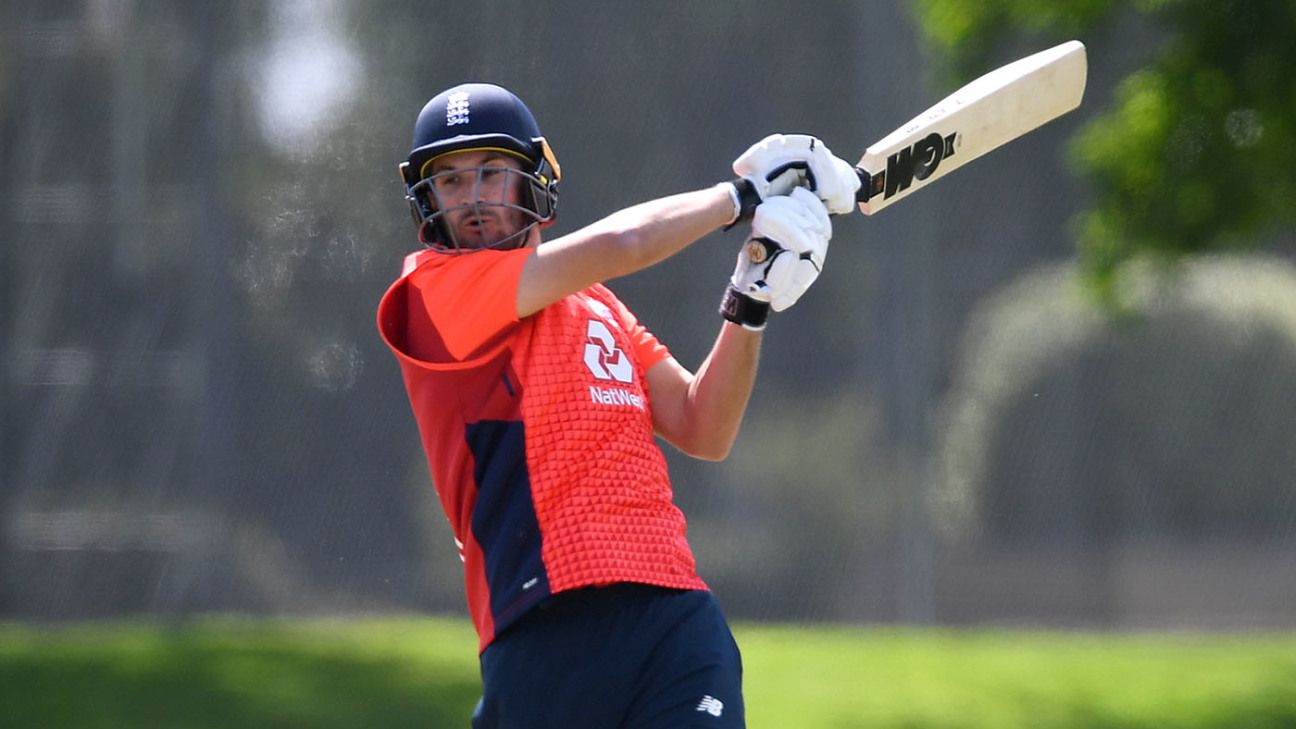
Lewis Gregory, the Somerset allrounder, retains hope of being selected for England's T20 World Cup squad despite an underwhelming start to his international career in New Zealand.
Gregory, who will captain England Lions on their upcoming tour of Australia in both four-day and 50-over cricket, played every game of the five-match T20I series in New Zealand in November, having impressed the selectors in the 2018 Vitality Blast when he scored 328 runs at a strike rate of 202.46.
But he bowled only four overs and faced just 19 balls across three innings when he made it to the crease, and as a result found himself left out of the white-ball legs of the ongoing South Africa tour.
ALSO READ: Moeen to assist with Lions camp ahead of Australia tour
"The England white-ball team is a very difficult one to break into," he said, "but there's no reason why I can't do that. It's about putting in performances, keeping knocking on the door, and hopefully that call comes.
"It's something I can't control - all I can do is control the performances that I keep putting, and we go from there."
Gregory found himself batting at No. 7 in New Zealand, having impressed in that role in the Blast, and admitted that he had failed to perform to the best of his abilities.
"It's a hard place to feel like you can affect a game," he said. "It's a hard place to win games from. Equally, guys who bat at No. 7 - it'a a hard skillset, to basically go out from ball one and clear the ropes, especially against the best bowlers in the world in my case.
"I don't feel like I did it to the best of my abilities when I had those opportunities. I feel like from that experience I'll be able to go back and learn, and do things differently if I get another opportunity."
Gregory's chances of making an impression were hit by injury, too. He managed only four appearances in the Blast last year due to a foot injury, meaning he came into the tour off the back of relatively little short-form cricket.
"I don't think it was more of a step up than I thought," he said, "but I hadn't played much T20 cricket leading into that, missing [almost] the whole Blast due to injury. If you've got the confidence behind you, it's easier leading in and executing what you've been doing.
"T20 cricket is a volatile game where you can easily go four or five games in that position where you don't get a score, and that's the nature of the beast.
"There were times when I went a little bit too gung-ho. But it's about learning from mistakes and opportunities - it's about recognising what has happened before."
English cricketers remain hot property on the T20 franchise circuit, meaning that Gregory has not had the opportunity to rest on his laurels. Instead, he spent five weeks over Christmas in Bangladesh, playing for Rangpur Rangers in the Bangladesh Premier League.
While his side made an early exit from the competition, he impressed with both bat and ball, making 262 runs at a strike rate of 140.10 in an unfamiliar middle-order role as a No. 4, and adding 15 wickets at parsimonious economy rate of 7.64. England's selectors have made no secret of the fact they keep close tabs on players' performances in short-form leagues worldwide, so Gregory's feats are unlikely to have gone unnoticed.
"It was really good," he said of his involvement in the competition. "Five weeks in Bangladesh is quite long, but the cricket side of things was really good.
"There were some quite different surfaces that I bowled on, compared to what you'd get in England - it was good to get some experience of playing on some low, slow spinning wickets, which is very different to what I'm used to at Taunton."
That exposure to different conditions necessitated certain changes in Gregory's game, including an increase in the number of slower balls he bowled - he claimed "95 percent" of his wickets in the competition were with change-ups - and he said he hopes to prove his ability to adapt again on the Lions tour in the coming weeks.
"You have to try and adapt as quickly as possible to what's in front of you, judge the surface each day and go with what you think will work. The majority of wickets [in Bangladesh] spun a bit, so it was a case of taking some pace off and getting them to put some energy back on the ball.
"We had a lot of experienced guys on our team who were brilliant to chat to and learn from, and I think I came back a better cricketer. Wherever you go you are going to come up against different opposition and different styles of play.
"I'm a big believer that the guys who do well consistently are the ones who can adapt the quickest. There are things I want to work on in my game every time I play. In white-ball cricket especially, the best ones are the ones who do it consistently."















 Phone: (800) 737. 6040
Phone: (800) 737. 6040 Fax: (800) 825 5558
Fax: (800) 825 5558 Website:
Website:  Email:
Email: 






